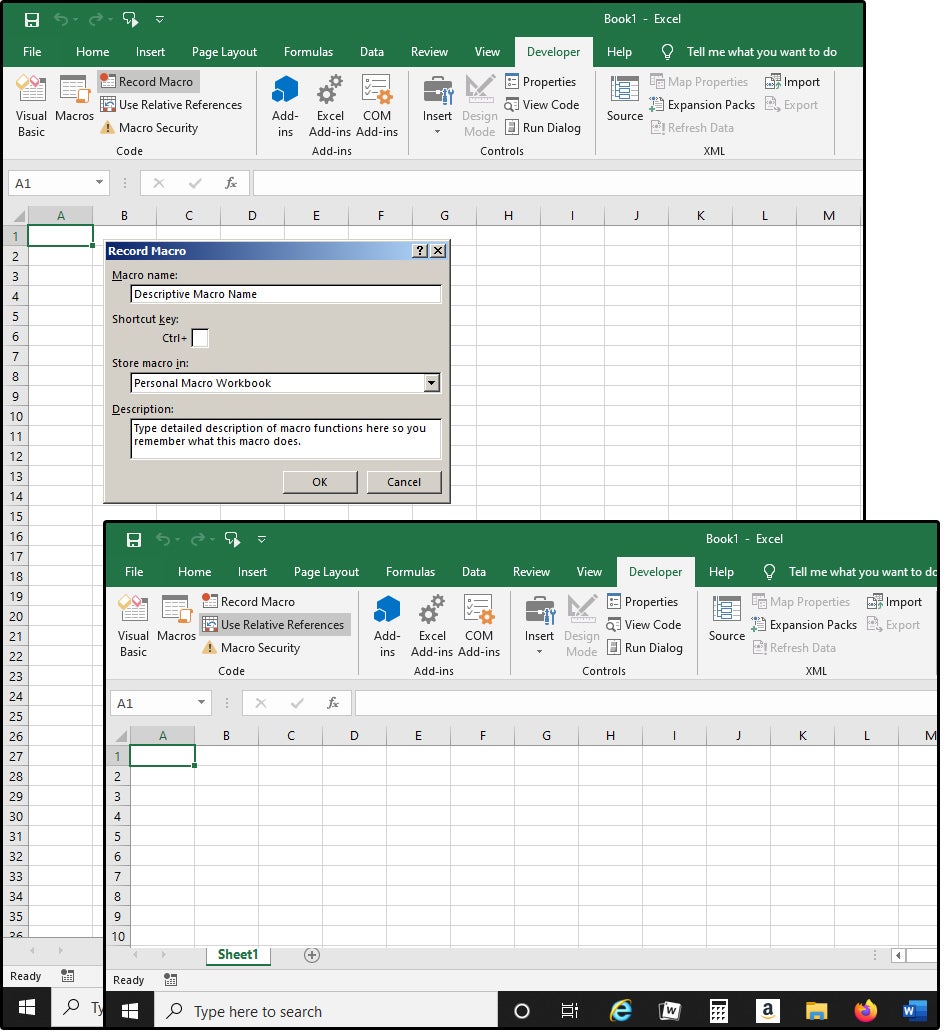Preload Excel Macro Sheets: A Simple Guide

Have you ever found yourself needing to load multiple Excel workbooks or sheets simultaneously to execute complex data analysis or macro operations? If your job involves juggling multiple data sets or automating repetitive tasks, mastering the art of preloading Excel macro sheets can be a game changer. This guide will walk you through the process, ensuring you can maximize efficiency and streamline your work using Excel macros.
Understanding Preloading in Excel

Preloading refers to loading Excel workbook or sheets into memory before they are needed for execution. This technique is especially beneficial in scenarios where:
- You need to perform operations across different workbooks.
- You are dealing with large datasets that take time to load.
- Macros that reference other sheets or workbooks need to be executed in sequence.

📌 Note: Preloading can help in reducing wait times when switching between sheets, particularly with macros or data-intensive tasks.
Why Preload Excel Sheets?

The benefits of preloading are manifold:
- Performance Enhancement: Reduces file access time by having data readily available.
- Macro Speed: Macros run faster when the data they need is already in memory.
- User Experience: Users experience smoother operations without the usual delays.
How to Preload Excel Macro Sheets

Step-by-Step Guide to Preload Sheets

- Open Excel and Navigate to VBA Editor: Press Alt + F11 or through Developer tab > Visual Basic.
- Insert a New Module: In the VBA editor, right-click any project folder, choose Insert > Module.
- Define Your Preloading Subroutine:
Sub PreloadSheets() 'Your code to open and preload sheets will go here End Sub - Add Code to Open Workbooks: Use
Workbooks.Opento load the workbooks you need. - Activate Sheets: After opening workbooks, use
Sheets("SheetName").Activateto preload the necessary sheets. - Run the Macro: You can run the macro by calling it from the Excel interface or within other macros.
Example VBA Code for Preloading Sheets

Sub PreloadSheets()
'Open Workbooks
Workbooks.Open "C:\Path\To\Your\Workbook.xlsx"
'Activate Sheets
Sheets("Sheet1").Activate
Sheets("Sheet2").Activate
Sheets("Sheet3").Activate
'Now, all these sheets are preloaded in memory
End Sub
📝 Note: Always ensure the workbook paths in your macro are correct to prevent errors. You might want to use error handling to manage file not found situations.
Best Practices for Preloading

- Only Preload Necessary Sheets: Preloading all sheets can use up system resources unnecessarily.
- Use Error Handling: To manage cases where workbooks or sheets might not be found.
- Performance Testing: Preloading might not always improve performance if the system is already under load.
- Close Unused Workbooks: After the operations, close workbooks to free up memory.
| Action | Description |
|---|---|
| Open Workbooks | Opens specified workbooks into memory |
| Activate Sheets | Activates specific sheets within those workbooks |
| Close Workbooks | Closes workbooks to free memory |

By following these steps and adhering to best practices, you can enhance your Excel macro automation by ensuring that all required data is ready and waiting for your macros to execute their tasks swiftly. This approach not only saves time but also reduces the likelihood of runtime errors due to file access issues.
In summary, preloading Excel sheets is about efficient memory management for faster macro execution. It's particularly useful when dealing with multiple data sources or complex operations. While preloading can provide significant benefits, it's crucial to implement it thoughtfully, considering system limitations and optimizing for the specific needs of your projects.
What if the workbook or sheet I want to preload doesn’t exist?

+
You should implement error handling in your VBA code. Use On Error Resume Next before the line that attempts to open the workbook or activate the sheet. Then, check if the operation was successful with Err.Number.
Can preloading slow down my system?

+
Yes, preloading too many sheets or workbooks can consume system resources, especially memory. It’s advisable to only preload what is necessary and close unused workbooks to manage memory usage effectively.
How often should I preload Excel sheets?

+
Preload sheets when you know you’ll need to reference data from them multiple times during a single session or when running macros that depend on having multiple sheets open simultaneously. Assess each case individually to determine if preloading is beneficial.



